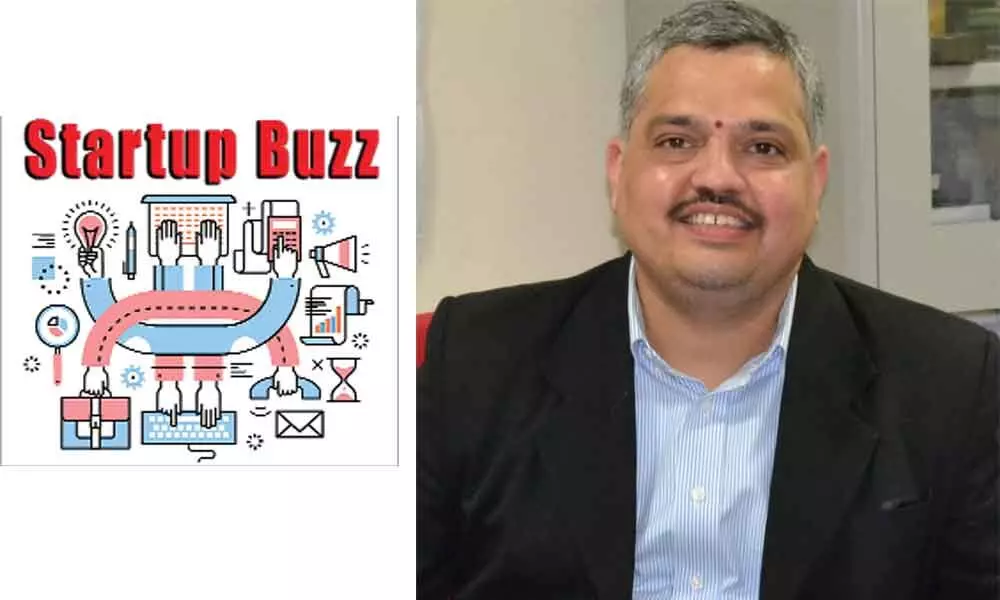Providing 'warmth' to less privileged people from remote areas
Their products include: Portable non-electric blanket to maintain newborn babies’ body temperature and prevent hypothermia, reusable face masks and air-activated heating technology
image for illustrative purpose

Startups today are increasingly placing importance on recognising the needs of societies so that they can make use of the unending opportunities present to formulate a product and then invest their time, money and effort to develop these products that are of immense use to the society. Satyanarayana VNT Kuchibhatla, Managing Director, Parisodhana Technologies tells Bizz Buzz in a exclusive interview, about the various facets of his company and products, which impact the lives of people positively
The following are the excerpts from the interview
What is the concept behind your startup and can you speak more about your venture?
Our company was registered in 2016. We solve problems facing mankind through applied research and affordable product development. Our current focus is on health and wellness technologies as one of our products, an instant, portable, non-electric blanket exemplifies this. Thousands of premature, new born babies with low birth weight are transported from remote locations to nearer bigger centers in India and other poorer countries. A majority of such babies lose their body temperature and become hypothermic on the way leading even to death in some cases, due to lack of neonatal transport infrastructure and trained medical staff. To prevent hypothermia and to address this critical gap, Parisodhana Technologies developed a portable, non-electric blanket to maintain newborn babies' body temperature and prevent hypothermia. Currently more than 200 babies are supported in the States of Telangana, Gujarat, Maharashtra, Manipur and Nagaland.
Using the same, air activated heating technology, Parisodhana team developed heat packs to keep body, hands, feet of the people warm at higher altitudes and sub-zero temperatures, specially army personnel placed in Siachen and other high altitude areas.
What are the challenges you faced in starting the unit?
The biggest challenge for any startup is a lack of clear standards, third party testing, regulatory and certification aspects for innovative products and multiple field trials required by each potential customer, especially for innovations directed at public health.
Requiring the use of CE and other foreign certifications also does not help innovators deploy their Made in India solutions despite the potential to improve or save lives. As we wanted to manufacture our products with 100 per cent materials sourced in India, it was quite difficult for first two years, but thanks to various collaborators – the entire supply chain of raw materials has been established in India.
Did you apply for a bank loan? If so, did banks give loans easily?
We are a boot-strapped company supported by friends and family, we were informed that banks did not have any mechanism to provide loans to pre-revenue companies even after providing perusal property as security by the founders. We used personal loans and grants to run our operations and developed multiple products.
From where have you sourced the raw materials and is it easy to get them?
As mentioned earlier, it was tough in the beginning due to lack of local suppliers who could meet our specific requirements and required quantities before a bulk purchase could be made. Some suppliers were very helpful and eventually, we had a complete set of raw materials and packaging material suppliers within India.
Can you give any suggestions for people who want to set up a startup?
One cannot start a startup because they lost a job or they think they can become rich quickly, it must be driven by a passion to create a positive impact on the lives of fellow citizens. One must understand the risks and rewards before taking the first step. People with such passion in India today have multiple schemes from government to receive a seed grant. However, as a startup founder, one should either have a group of promoters or personal savings or the right alignment to take the minimum viable product (MVP) to market deployable prototype – this is the most tricky or difficult stage to raise funds.
Do you think rules and procedures should be more entrepreneur friendly? What are your thoughts?
Our personal experience is that there are enough rules and policies in place, but a clear understanding of those who implement these and understanding an entrepreneur is the missing link.
No startup, which desires to compete at global level, should be concerned about the regulatory or procedural norms as they must voluntarily adhere to all local laws and regulations. However, compliance burden must be commensurate with the scale to facilitate the faster growth of the innovative product companies in line with the vision of Make in India for India and for the world. The most critical policy (more at implementation level) is, more than the grants, a mandatory procurement support to the products which clear the regulatory barriers in place by all government departments. As such, some progress is underway through special allowances for DPIIT recognised startups.
"The first thing a person has to keep in mind before starting a business is that, a startup is both struggle and challenge, as a person goes through a lot of ups and downs. Therefore, we have to focus on reaching the goal with confidence, positivity and never lose hope," concludes Satyanarayana.

